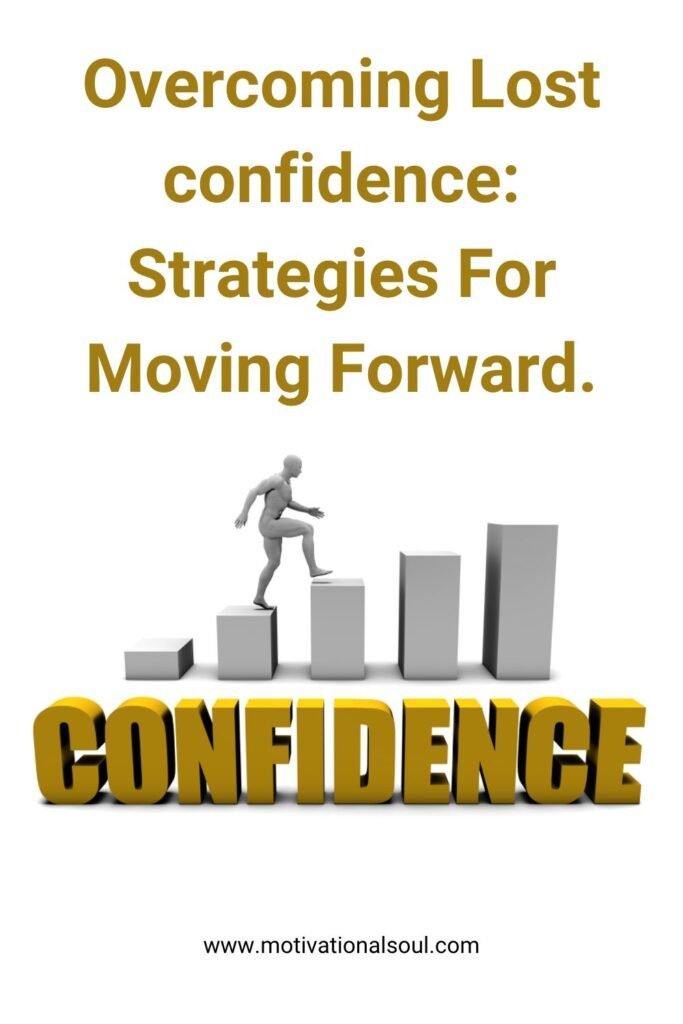Overcoming Lost Confidence: Strategies For Moving Forward.

Confidence can unravel anyone, ambushed by setbacks at work, personal stumbles, or life’s tempests. These moments can strand us feeling adrift and marooned. Yet confidence can be rekindled—even forged stronger—through deliberate action. This article unpacks strategies to reclaim self-assurance and stride forward. By excavating the roots of doubt, unmasking corrosive self-talk, and weaving in tactics like attainable goals and radical self-care, we can sculpt resilience to navigate life’s storms.
- Plumbing the Depths of Lost Confidence
To untangle lost confidence, we must first excavate its origins. Self-doubt often lurks in shadows: past failures, criticism, or comparing ourselves to others. Someone battered by workplace failures might falter, convinced they’ll never succeed. Another, entangled in comparison, may discount their own strengths. By sifting through these triggers, we can dismantle their grip and stitch a roadmap to confidence. Deeper wounds, like trauma, may require a guide—a therapist’s steady hand—to unearth and heal. - Unmasking Toxic Self-Talk and Limiting Beliefs
Negative thoughts calcify into mental scripts: “I’m not enough.” Limiting beliefs shackle potential, whispering, “You don’t deserve this.” To silence them, stalk your inner dialogue. Catch yourself spiraling after a misstep? Interrogate those thoughts: “Is this true?” Swap “I can’t” with “I’ll learn.” Each rewrite chisels new neural pathways, unshackling confidence. - Nurturing a Growth Mindset
A growth mindset thrives on challenge, viewing failure as fertilizer for growth. Venture beyond comfort zones; let obstacles ignite curiosity, not fear. Reframe setbacks: “What did this teach me?” Devour new skills—take a class, volunteer—and watch resilience bloom. - Slicing Goals and Toasting Tiny Triumphs
Carve mammoth goals into bite-sized strides. Instead of “get fit,” pledge to walk 30 minutes thrice weekly. Each step propels momentum. Feast on progress: a finished task, a mastered skill. Even a mental high-five fuels grit. - Cradling Yourself with Compassion
When doubt gnaws, swaddle yourself in kindness. Mindfulness tunes you into emotions without judgment. Recognize struggle as human; whisper, “This is hard, but I’m trying.” Nourish your body, rest deeply, savor joy. Self-compassion anchors worth, transforming storms into navigable seas. - Mining Wisdom from Mentors
Let role models illuminate your path. Study their grit—how they weather failure. Seek mentors to mirror your potential. Their stories kindle courage, proving resilience is learnable. - Inching Forward, Igniting Momentum
Chisel aspirations into daily micro-actions. Write one paragraph. Make one call. Each effort sparks momentum. Champion small wins—they compound into unshakable belief.
In Closing
Rebuilding confidence unfolds slowly, a mosaic of patience and grit. Stumbles? They’re stepping stones. Marinate in progress, not perfection. With each stride, you resurrect resilience, stitching a life threaded with self-trust. You’re the alchemist—turn doubt into fuel, and watch your wings unfold.




Recent Comments